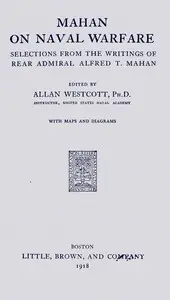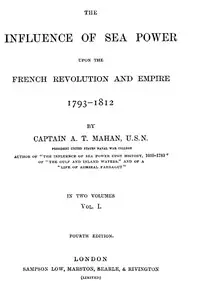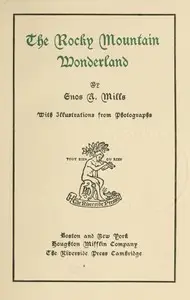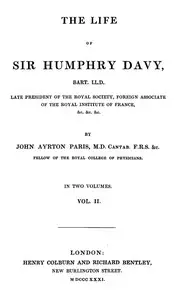"Admiral Farragut" by A. T. Mahan is a historical account written in the late 19th century. The work explores the life and career of David Glasgow Farragut, focusing on his notable achievements as a naval commander during pivotal moments in American history. The text delves into his early life, his family's background, and the events that led to his prominence in the United States Navy. The opening of the book provides an insightful look into Farragut's family lineage, notably detailing his father's Spanish heritage and service in the Revolutionary War. It traces his formative years, highlighting critical experiences that shaped his character, such as his encounters with notable naval figures and the influences that guided him toward a career in the Navy. Mahan emphasizes not only Farragut's professional journey but also the personal influences that molded him into one of the most celebrated admirals in American history. (This is an automatically generated summary.)

Admiral Farragut
By A. T. (Alfred Thayer) Mahan
"Admiral Farragut" by A. T. Mahan is a historical account written in the late 19th century. The work explores the life and career of David Glasgow Far...
Alfred Thayer Mahan was a United States naval officer and historian, whom John Keegan called "the most important American strategist of the nineteenth century." His 1890 book The Influence of Sea Power Upon History, 1660–1783 won immediate recognition, especially in Europe, and with the publication of its 1892 successor, The Influence of Sea Power Upon the French Revolution and Empire, 1793–1812, he affirmed his status as a globally-known and regarded military strategist, historian, and theorist. Mahan's works encouraged the development of large capital ships — eventually leading to dreadnought battleships — as he was an advocate of the 'decisive battle' and of naval blockades. Critics, however, charged him with failing to adequately explain the rise of largely land-based empires, such as the German or Ottoman Empires, though Mahan did accurately predict both empires' defeats in World War I. Mahan directly influenced the dominant interwar period and World War II-era Japanese naval doctrine of the "decisive battle doctrine" , and he became a "household name" in Germany. He also promoted American control over Hawaii though he was "lukewarm" in regards to American imperialism in general. Four U.S. Navy ships have borne his name, as well as various buildings and roads; and his works are still read, discussed, and debated in military, historical, and scholarly circles.


















